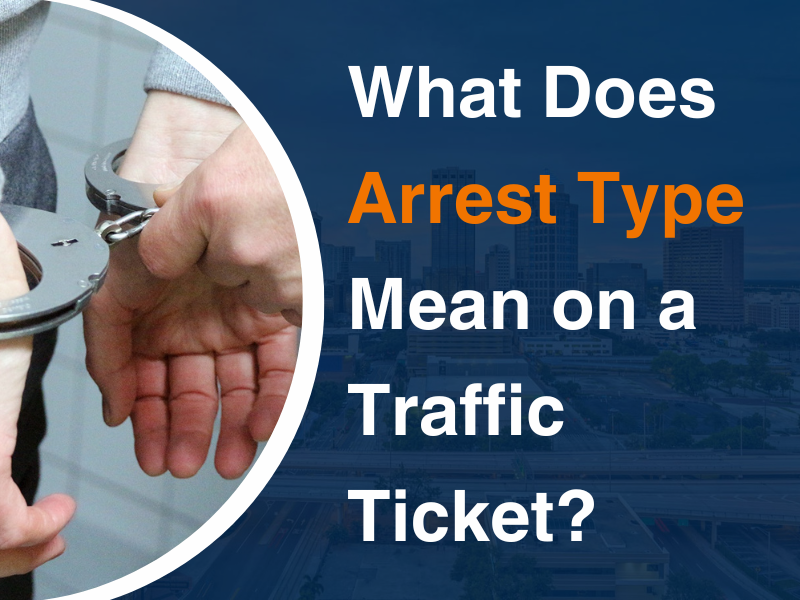“Arrest type” on a traffic ticket does not mean you were physically arrested or taken into custody. Instead, it refers to the specific method or technique used by the officer to identify or confirm the traffic violation. Common arrest type codes indicate whether the officer used visual estimation, radar, laser, or other methods to determine your infraction. Understanding your arrest type can be crucial in deciding how to contest the ticket effectively.
Call Us For a Free Traffic Ticket Defense Consultation
Or, complete our short contact form
Key Takeaways:
- “Arrest type” on a traffic ticket refers to how the officer identified the violation (visual estimation, radar, laser), not a physical arrest.
- Common arrest types:
- Visual estimation: Subjective officer judgment, easier to contest.
- Radar: Uses radio waves, widely accepted but may be challenged through calibration records.
- Laser (LIDAR): Highly precise, measuring speed via light pulses, requires careful defense strategies regarding calibration and officer training.
- Arrest type significantly impacts:
- Legal penalties: Tickets based on radar or laser often carry more substantial fines and license points compared to visual estimation.
- Insurance rates: Radar or laser tickets typically result in higher insurance premium increases.
- Defense approaches: Strategies differ; visual estimation relies on disputing officer judgment, while radar and laser involve challenging device accuracy and maintenance records.
- Navigating the legal process involves:
- Thoroughly reviewing the arrest type and ticket details.
- Gathering appropriate evidence (device calibration, witness testimonies, visual proof).
- Considering legal representation or negotiating reduced charges or traffic school options.
- Financial implications include fines, increased insurance rates, and potential legal costs, which vary according to arrest type and severity.
- Professional legal assistance, such as from the Tampa traffic attorneys at Sulte Law Firm, can significantly improve outcomes by offering tailored defense strategies, evidence collection guidance, and plea negotiation.
Table of Contents
- Traffic Ticket Stats
- Common Arrest Types on Traffic Tickets
- How Arrest Types Impact Your Traffic Ticket
- Navigating the Legal Process for Traffic Tickets
- Get Legal Help with Your Traffic Ticket
When you receive a traffic ticket, one of the terms you might come across is “arrest type.” Understanding what this means is crucial because it can impact the outcome of your case, the penalties you face, and your ability to contest the ticket.
Let’s dive into what arrest type means and why it’s important for you to know.
Traffic Ticket Stats
| Statistic | Value |
|---|---|
| Speeding tickets issued annually in the U.S. | 41 million |
| Average fine for a speeding ticket | $150 |
| Annual revenue from speeding tickets | $6 billion |
| Percentage of drivers receiving a speeding ticket each year | 20% |
| Drivers admitting to breaking the speed limit | 95% |
| State with the highest speeding fines | Nevada (up to $1,000) |
| Average insurance rate increase from speeding tickets | 22% |
| Americans getting a speeding ticket each year | 1 in 6 |
| Most common reason for traffic stops | Speeding |
| Communities using red-light cameras | Over 500 |
